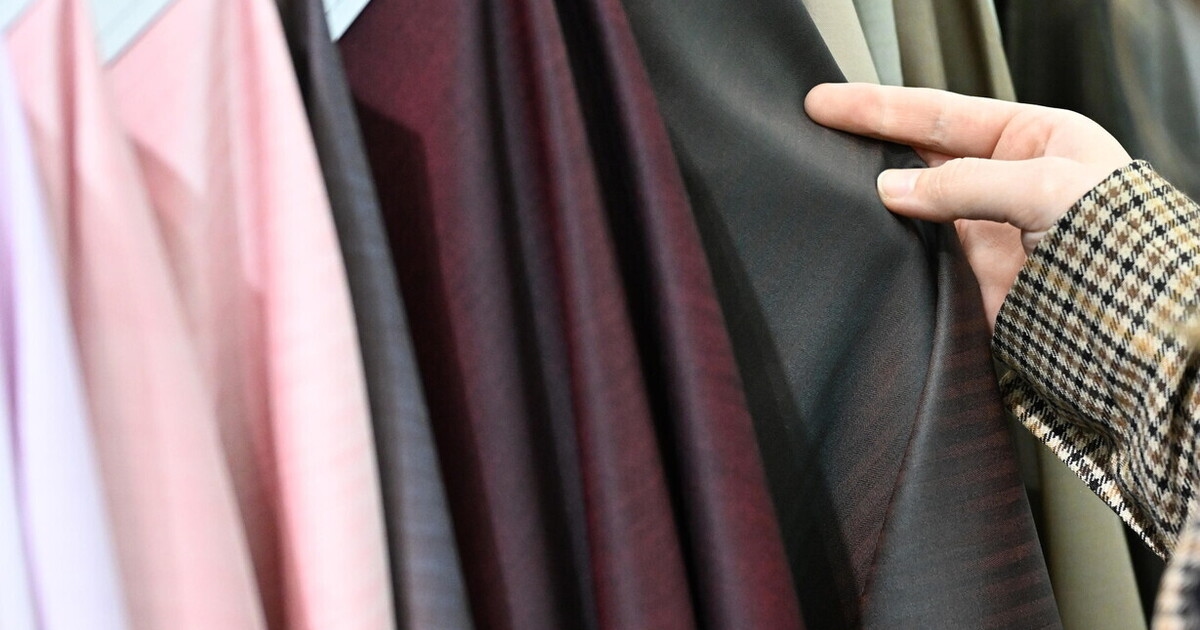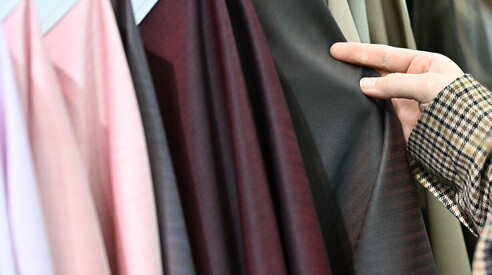Without the trust of those who buy, value does not exist


Ansa photo
The Fashion Sheet
Strategies and some dissent toward "certain brands that are actually commercial companies" by Gian Luca Gessi, a leading figure in the fastest-growing sector of the moment: wellness design. He also offers some thoughts on Made in Italy, "which must be defended, but with clear rules" and a transparent supply chain.
"Made in Italy must be defended at all costs, along with our unique culture of beauty, which must be applied throughout the entire Italian system and the supply chain that supports it," says Gian Luca Gessi from the other side of the computer screen. "However," he adds, "there must be shared protocols and clear rules for those who access it, for those who embrace this identifying mark." Because even in terms of brand recognition, whether individual or collective, as is precisely the case with Made in Italy, "no one will recognize the value you aspire to if you don't enjoy their trust . And we know full well that in the narrative that has been told in recent years, many things haven't been true at all. Many brands are actually commercial corporations."
Every now and then, she steps out of frame and an assistant moves the camera. A colleague takes notes: "Take them too, okay? I have to run," she adds, looking at my screen, which, for unfathomable reasons, is black. Scheduling a conversation about the relationship between quality and price and the gradual shift in luxury purchases from fashion to wellness and longevity—a hot topic since Kering's new CEO, Luca De Meo, partnered with L'Oréal after selling Creed—was a feat.
Gessi produces wellness accessories and facilities, and is rapidly expanding. Its founder is never around, although now, as he paces the room because the practices of the Socratic school are indispensable for many, he observes that quality of life, in an aging world, is the central theme, but that longevity cannot be understood as a lengthening of one's life, but rather as "living it to the fullest." Which, to return to the direction set by De Meo at Kering, doesn't mean multiplying wardrobe items, but rather, health maintenance activities. Founded as a specialized workshop in Serravalle Valsesia, near the Loro Piana estate, in a few decades Gessi has become a member of Altagamma and a symbol of luxury in a segment it essentially created: private wellness. When you enter the bathrooms or spas of a five-star hotel or a luxurious home, take a look around: in almost every case, the logo is there, with graphics that seem to accelerate graphically, visually, like a jet of water, on the faucets, mixers, shower stalls, and none of them even vaguely resemble what they are, that is, their function. A few years ago, the reason for one of the many awards bestowed upon him (he is also a knight of labor, no one calls him anything other than Gian Luca) was for having "managed to transform a traditional product with little innovation into a sophisticated, design-led furnishing object." No definition could be more fitting. The latest collection was designed by Kenzo Kuma, and the showrooms scattered around the world, the Gessi Houses, are places of work, meeting places for thousands of architects and designers, and, occasionally, epic parties. During Design Week, the Milan event space, in the underground halls that housed the unforgettable Manzoni cinema in the 1960s and 1970s and are now decorated with waterfalls and plants and a hall that can accommodate up to three hundred people, the line to get in is reminiscent of Studio 54 in its heyday, bouncers included. Last year, I gave up; the human barrier was insurmountable. Two years ago, in London, in the small building in the City area that houses the Casa, the Christmas party moved to the square, quite unforgettable despite the cold. In Italy, metal bathroom fixtures and fittings originated in the area where Gessi is currently transforming its park into a major green project with a river park and wellness areas, including the redevelopment of the Gattinara industrial area. This project will be completed in a few months. However, this is a unique case: the most the competition has achieved to date is sponsoring a competition at the Alpine Golf Club, presided over by Claudio Marenzi, which always includes the definition of "taps" on its plaque, which is beautiful and useful but not seductive. Gian Luca Gessi's great insight was to never allow his product and its lines to be perceived as having a primary function, but to shift their meaning and semantics, presenting them as luxury objects.
The strategy is based on a seemingly complex approach, defined as "haute culture," which includes meetings and refresher courses in sociology, architecture, and design for employees. A significant portion of the company's finishes are handcrafted, the warehouse is not only automated but processes are accompanied by music and strobe lights, and bicycles are used in the corridors, ideal for a stroll in the park. This entire exercise in lateral thinking and care for the local area and its people has paid off: the company closed 2024 with a turnover of €260 million, up 8.5 percent, and an EBITDA of 20 percent. It aims to double that figure in the coming years. It plans to open a series of new "Gessi homes" in upscale neighborhoods, including a garden building in Paris between Place de l'Etoile and Avenue Foch, and a few days later in Zurich in the gallery adjacent to the train station, which, unlike many other European stations, is among the city's most chic locations, also due to its proximity to museums. Riyadh will follow, which, regardless of the critics of Matteo Renzi's activities, is the new hub for global luxury investments, Istanbul, and a large number of other cities that will join London, New York, Singapore, and Dubai. "Conviviality is an essential part of the lifestyle model we propose": a journey that begins with shared spaces and leads to individual ones, where design meets the most intimate sphere of well-being. Therefore, and to return to the starting point, "the right price does not exist. Instead, there is a continuous, constant balance, the result of progressive adjustments" and also of a simple observation: that in the affluent and relatively calm world we live in, in this well-being that has now accompanied us for four generations in Italy, and many more elsewhere, "all needs have been satisfied": now there are desires, the stuff of dreams and, like them, elusive. Spaces are conquered through battles for position and positioning, even aggressive ones, certainly, but it must be a "campaign of truth. It is won when the path you take, and how you travel it, is recognized."
More on these topics:
ilmanifesto





